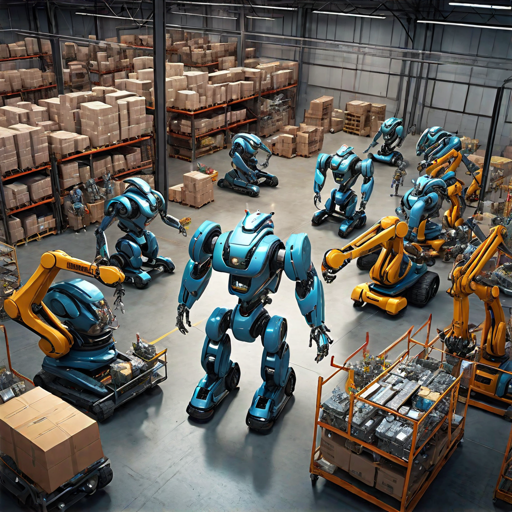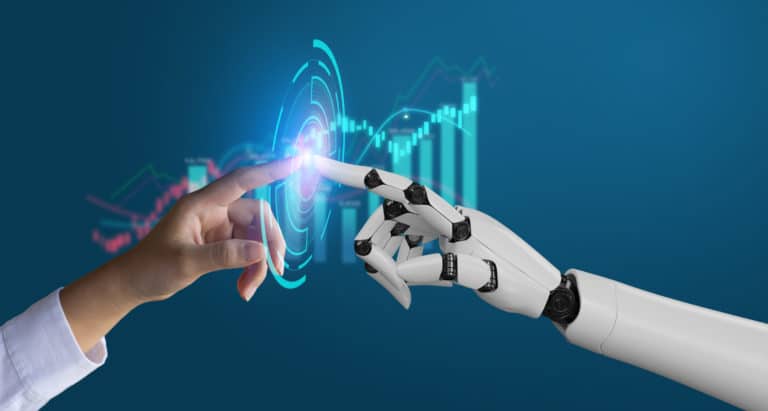Dear Beamers,
Greetings! As part of our commitment to delivering comprehensive insights and updates, we’re thrilled to present this week’s edition of our newsletter, spiced with the latest developments across key sectors.
This article, in particular, explores the reality of the Nigerian youth in the context of unemployment and job security.
The modern-day youth not only competes with fellow humans but also contends with a non-human, more precisely, a non-living entity known as Artificial Intelligence (AI). It would have been less worrisome if it were a temporary change, but AI has come to stay, and the world market shape has got to accommodate the new competitor.
You’re not alone in contemplating what the future truly holds since the arrival of AI. AI has been around for a while, but recently, it feels like a scene from movies where super aliens are set on taking over the Earth from humans. This is a matter of great concern, but its answers are not beyond reach. We’ve tactically explored the potential impact of AI on our world, with emphasis on the job market. So, lace up your seatbelts for a quick drive.
Will AI help the world or hurt it? Will smart machines really replace human workers? The impact of AI on the world remains a question of balance between its benefits and potential drawbacks. While there is concern about smart machines replacing human workers, it’s essential to recognize that both humans and AI possess unique strengths. Hence, the real question is: how many more jobs will be created or lost with the advent of AI.

The transformative impact of AI on businesses is reshaping traditional work dynamics. There’s a growing perception that organizations are transitioning towards intelligent machines, displacing human roles in manufacturing, services, recruitment, and finance. This shift often directs human workers towards lower-paid roles or unemployment. The prevailing trend prompts contemplation on a potentially unrecognizable workforce within the next decade.
As with any contentious topic, opinions on Artificial Intelligence are divided into those in favor and those against. The introduction of new AI tools and the increasing media coverage surrounding them contribute to a widening gap between these two perspectives.
Market research analysts highlight the potential positive transformations AI could usher in, such as heightened productivity, advancements in healthcare, and expanded educational access.
In support of this ideology, Kelvin Chisom, CEO of KelvTech, a growing Tech company in Nigeria, gave his insights.
“Of course some argue that AI and robotics pose a threat to jobs, especially in manual and repetitive work, it’s important to recognize their potential to create new vocations and address complex issues. Automation can substitute labor, fostering innovation in products and services. AI holds the promise of positive changes, boosting productivity, advancing healthcare, and widening access to education. They will make our daily lives more convenient just like machines.”
While acknowledging the thoughtful predictions regarding AI’s positive impact on the job market, the comprehensive effect of AI on humanity remains unclear even to its creators. The strong influence of AI has potentials to extend into economic, legal, political, and regulatory spheres, impacting various jobs and industries. Proactive preparation for these implications and uncertainties is essential.
According to Ben Ajayi, a software developer and Python programming student,
“The rise of AI does raise concerns about the potential replacement of numerous full-time jobs, especially evident in areas like online customer services. Many customer interactions no longer involve human employees on the phone, particularly for repetitive queries that don’t demand high emotional brilliance. Receptionists are also affected, with companies globally utilizing robots to manage tasks, including handling calls.”
He emphasized, “These robots are capable of seeing, listening, understanding, and communicating with guests. Times have changed and it’s really amusing how everything is happening so fast.”

Securing employment may pose increasing challenges in the years ahead, as the focus shifts from human competition to contending with AI. Organizations are progressively integrating AI-powered resources, resulting in a decrease in human employability. For example, automation and AI are transforming bookkeeping practices, offering efficiency, flexibility, and security through cloud-based services.
The gradual infusion of AI across sectors may drive organizations to streamline costs by minimizing the workforce, potentially leading to unemployment. This shift could also render certain courses less relevant in higher education. However, there’s a good news for many in certain industries as it will be difficult or impossible to replace their vocations completely.
Cynthia George, a student entrepreneur believes certain individuals will breath a sigh of relief as AI will not threaten their livelihood. In her words:
“Teachers are like our guiding stars, influencing our academic choices based on their inspiration and personal connections. It’s hard to imagine a future where our learning experiences are entirely digital. Leadership roles, like Directors, Managers, and CEOs, require a human touch for effective team management and communication of a company’s mission. In the legal field, jobs such as lawyers and judges involve real-life negotiation, strategic thinking, and the ability to make decisions that can significantly impact lives. Despite the rise of automation, there’s an ongoing need for the unique capabilities that only humans bring to the table.”
Acknowledging the inevitable integration of artificial intelligence into our daily lives, it’s essential to embrace this shift. Preparation for the unpredictable future is key; acquiring the necessary skills is a paramount imperative for riding the wave and crafting a successful career in this evolving job market.

In the age of artificial intelligence, staying ahead necessitates embracing continuous learning, cultivating soft skills, maintaining agility, and specializing in a specific domain. To distinguish yourself, enhance technical expertise, complete online courses, grasp industry dynamics, accumulate work experience, and refine soft skills.
Given AI’s evolving nature, extensive research and collaboration are essential. Developing soft skills becomes a crucial differentiator, setting you apart from purely technical counterparts. Adapting to the evolving job market equips workers to not only survive but to capitalize on the opportunities AI has to offer.




